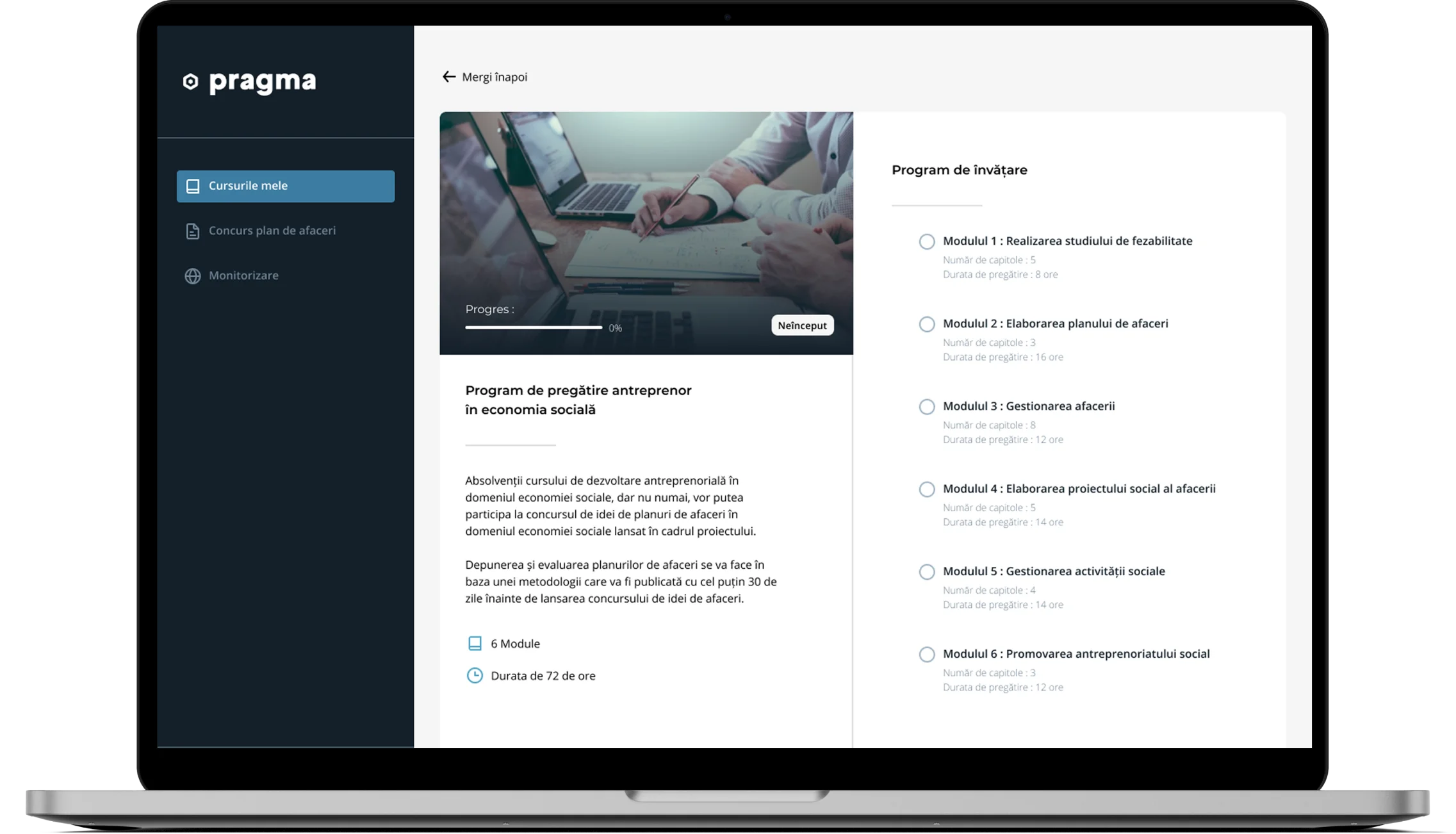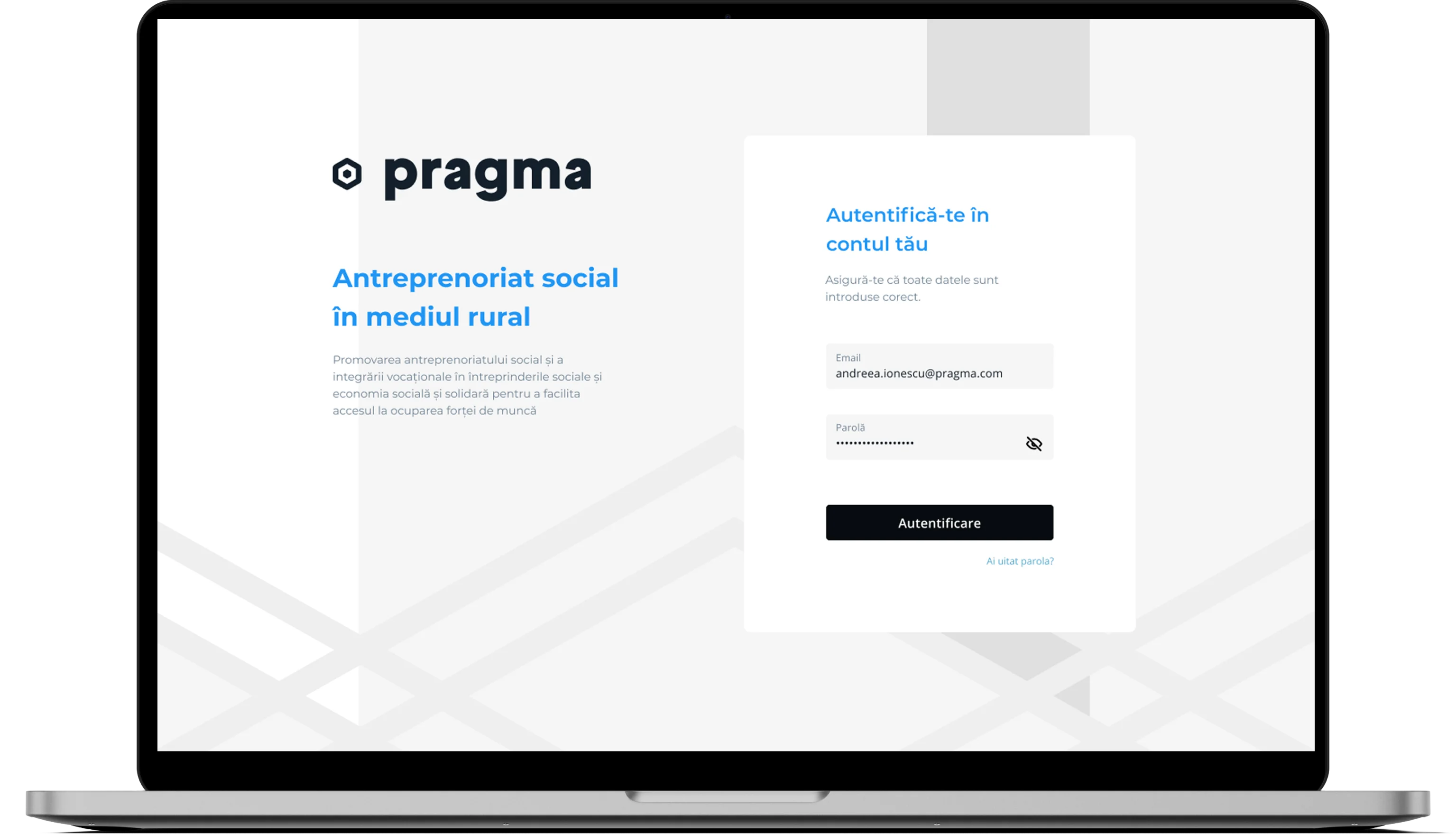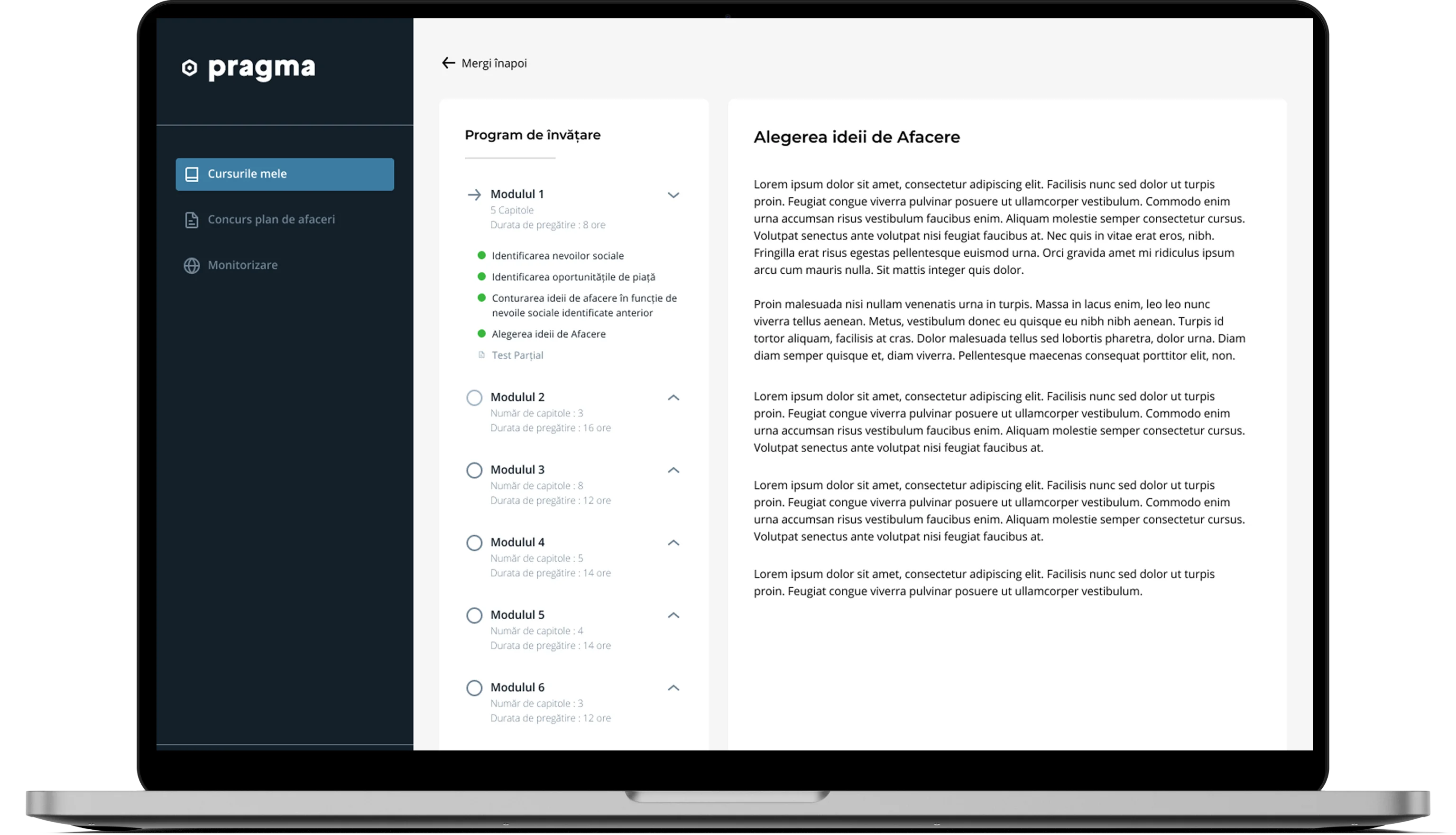
Pragma is a custom-built Learning Management System (LMS) designed to support the delivery of entrepreneurship courses for people in rural areas of Romania. The project was commissioned and delivered through a public tender, aiming to improve access to entrepreneurial education in underserved communities.
The platform combines ease of use, multi-device accessibility, and intuitive design, ensuring participants can complete courses, tests, and business plan submissions digitally.
Entrepreneurship education in rural regions faces key obstacles:
Pragma was designed to address these pain points by offering a centralized, digital-first solution.

The Pragma platform was designed for Romania's central region, with a strong focus on rural communities. These areas had limited exposure to digital education tools and struggled to access entrepreneurial training at scale. By digitizing courses, tests, and certification processes, Pragma expanded opportunities for hundreds of participants who otherwise relied on traditional, in-person training.
The solution needed to account for the fact that many users were not digitally native. Accessibility and simplicity were prioritized in both design and functionality, ensuring the platform could be easily used on multiple devices, even by participants with minimal technical experience.

Before Pragma, entrepreneurial training programs in Romania’s rural areas relied heavily on in-person sessions and manual paperwork. This created significant barriers for both participants and administrators:
These challenges prevented programs from reaching their full potential and hindered efforts to empower rural communities through entrepreneurship education.

Linnify developed Pragma, a digital platform built to streamline the entire entrepreneurial training journey. The solution replaced outdated workflows with a centralized, intuitive system that addressed both participant and administrator needs:
By prioritizing ease of use, scalability, and compliance, Pragma transformed entrepreneurship education in rural Romania into a more accessible, efficient, and impactful process.

Linnify acted as the design, development, and delivery partner for Pragma, overseeing the platform from concept to launch. Our team was responsible for building the end-to-end Learning Management System, ensuring it met the technical requirements of a public-sector project while also being accessible to non-technical users in rural communities.
To deliver Pragma successfully, we combined UX research with domain-specific insights into entrepreneurship education. This approach allowed us to create a user-friendly interface for participants and an intuitive administration dashboard for program managers.
We implemented a modular architecture that made it possible to design courses, assessments, and business competitions flexibly.
Our technical expertise in web development and quality assurance ensured the system was scalable, stable, and compliant with public tender requirements, while still delivering a seamless experience for learners with limited digital skills.



Pragma demonstrated how digital solutions can extend entrepreneurial training to rural areas, improving accessibility, monitoring, and outcomes. The platform simplified the process for both administrators and participants, creating a sustainable foundation for future educational initiatives.
Through Pragma, Linnify gained valuable experience in building LMS platforms for public sector projects, balancing accessibility, compliance, and scalability. The project highlights the potential of technology to empower rural communities through education.


Pragma is a custom Learning Management System built for entrepreneurship education programs in rural Romania.
It was designed for rural participants in Romania’s central region, enabling them to access entrepreneurial training digitally.
Course management, user registration, digital testing, automated reporting, certification, and a business plan competition module.
It provides a dashboard for managing courses, users, and reports, making program administration more efficient.
It democratizes access to entrepreneurial education, giving rural communities digital tools to learn, test, and build businesses.